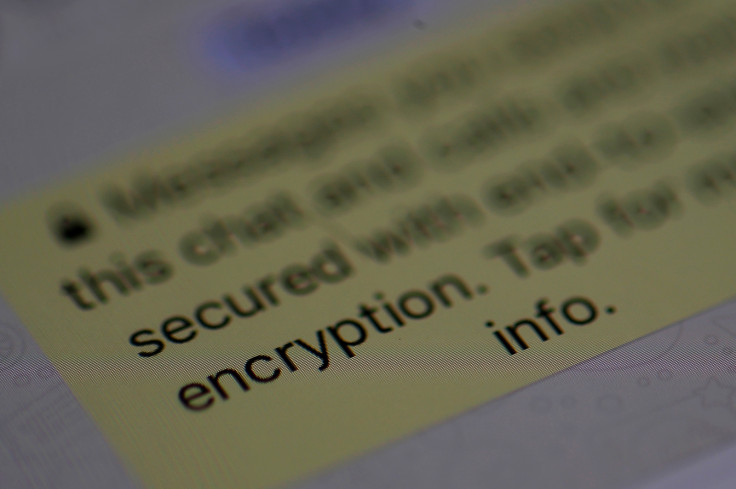Encryption ban? Politicians need to wise up or shut up about it
A deep lack of understanding of technology has been exposed in the great encryption debate.

When Amber Rudd, the Home Secretary, spoke out about how to tackle the problem of terrorists using online forums to spread their messages of hate and fear she exposed a laughable lack of understanding about the technology.
"The best people who understand the technology, who understand the necessary hashtags to stop this stuff ever being put up, not just taken down, but ever being put up in the first place are going to be them," Rudd said to the BBC.
No, I'm not sure what she means either.
Unsurprisingly Rudd's comments were instantly lampooned by Twitter users but beyond the embarrassment factor and the snickering, there is real worry when Rudd starts talking about banning encryption.
She told the Andrew Marr Show that it was "completely unacceptable" that police and intelligence agencies are unable to view messages send by Khalid Masood on WhatsApp, a service he is reported to have been using moments before he carried out the attack on the UK Parliament which killed four people.
"We need to make sure that organisations like WhatsApp, and there are plenty of others like that, don't provide a secret place for terrorists to communicate with each other," Rudd said.
The "plenty of others" include Apple's iMessage which also provides users with end-to-end encryption by default, meaning that not even the companies who offer the service can access the content of the messages.
WhatsApp's 'end to end' encryption is "absolutely unacceptable...there should be no place for terrorists to hide" says @AmberRudd_MP #marr pic.twitter.com/aVtDP6FRvD
— The Andrew Marr Show (@MarrShow) March 26, 2017
Flawed theories
There are some basic issues with Rudd's call. Firstly, because WhatsApp has end-to-end encryption turned on by default, it wouldn't even be able to access any messages even it if wanted to. Secondly, if the police have Masood's phone — which they presumably do if he was using it moments before the attack — then they will be able to access his unencrypted WhatsApp conversations. If the phone is locked with a passcode, then the police will need to talk to Apple or Google, not Facebook.
Finally, because Masood was not seen as a threat by the intelligence services, then even being given access to WhatsApp through some backdoor would not have prevented the attack – as they would not have been monitoring his communications.
Later on Sky News, Rudd sought to clarify her view on encryption, saying she wants different rules for different people. "End-to-end encryption has a place. Cybersecurity is really important and getting it wrong costs the economy and costs people money, so I support end-to-end encryption."
Rudd was quickly backed up fellow MP Nadine Dorries. We need to "rise up against companies like #Apple and #WhatsApp" she tweeted from her Apple iPhone, adding that rather than looking to undermine encryption entirely, she wanted to "just develop a terrorist-related exception."
Selective encryption
The complete stupidity of suggesting you can pick-and-choose what is encrypted only goes to prove the point that many politicians who are charged with protecting national security are simply not equipped to make informed decisions on this topic.
As security expert Bruce Schneier says: "I can't build an access technology that only works with proper legal authorisation, or only for people with a particular citizenship or the proper morality. The technology just doesn't work that way. If a backdoor exists, then anyone can exploit it."
Wikipedia founder Jimmy Wales tried to boil it down to its most basic:
Encryption is mathematics. It is not possible to ban encryption or to impose legally that only some weak types are used. Period.
— Jimmy Wales (@jimmy_wales) March 27, 2017
It is hard to believe that politicians still believe that banning encryption is a good idea. David Cameron floated the idea of breaking encryption following the Charlie Hebdo attack back in 2015. His call came just days after the attacks, preying on the fears of the public in the wake of such a public and horrific event. Just like Rudd two years later, Cameron also spoke about banning these "safe spaces" where terrorists communicate.
Rudd said Sunday that she now wants to legislate in order to force companies like Facebook and Apple to build backdoors into their encrypted messaging platforms. But the thing is, Rudd already has the power to access whatever data she wants. It's called the IP Bill and it became law just last November. The draconian surveillance powers its hands the UK's intelligence services have been widely criticized by privacy advocates but these criticisms were waved aside by the government.
As Jimmy Wales says, you cannot selectively break encryption, it is a binary choice. It either works or it doesn't. By undermining encryption in order to try and seek an edge over terrorist communicating online, the UK government would also undermine private communications for every other citizen in the world, not to mention secure online banking, e-commerce and many other tools we have become used to using every day.
We have seen time and again that simply giving the intelligence agencies more and more data is not the answer, it just makes it harder to find the information that really matters. "The main reason governments don't like encryption is because it is a barrier to them indiscriminately monitoring all our personal data," Allan Hogarth, head of advocacy at Amnesty International UK, told IBTimes UK. "They already have a range of tools at their disposal for surveillance of specific targets. Making the haystack bigger will not help find the needle of terrorism."
© Copyright IBTimes 2024. All rights reserved.






